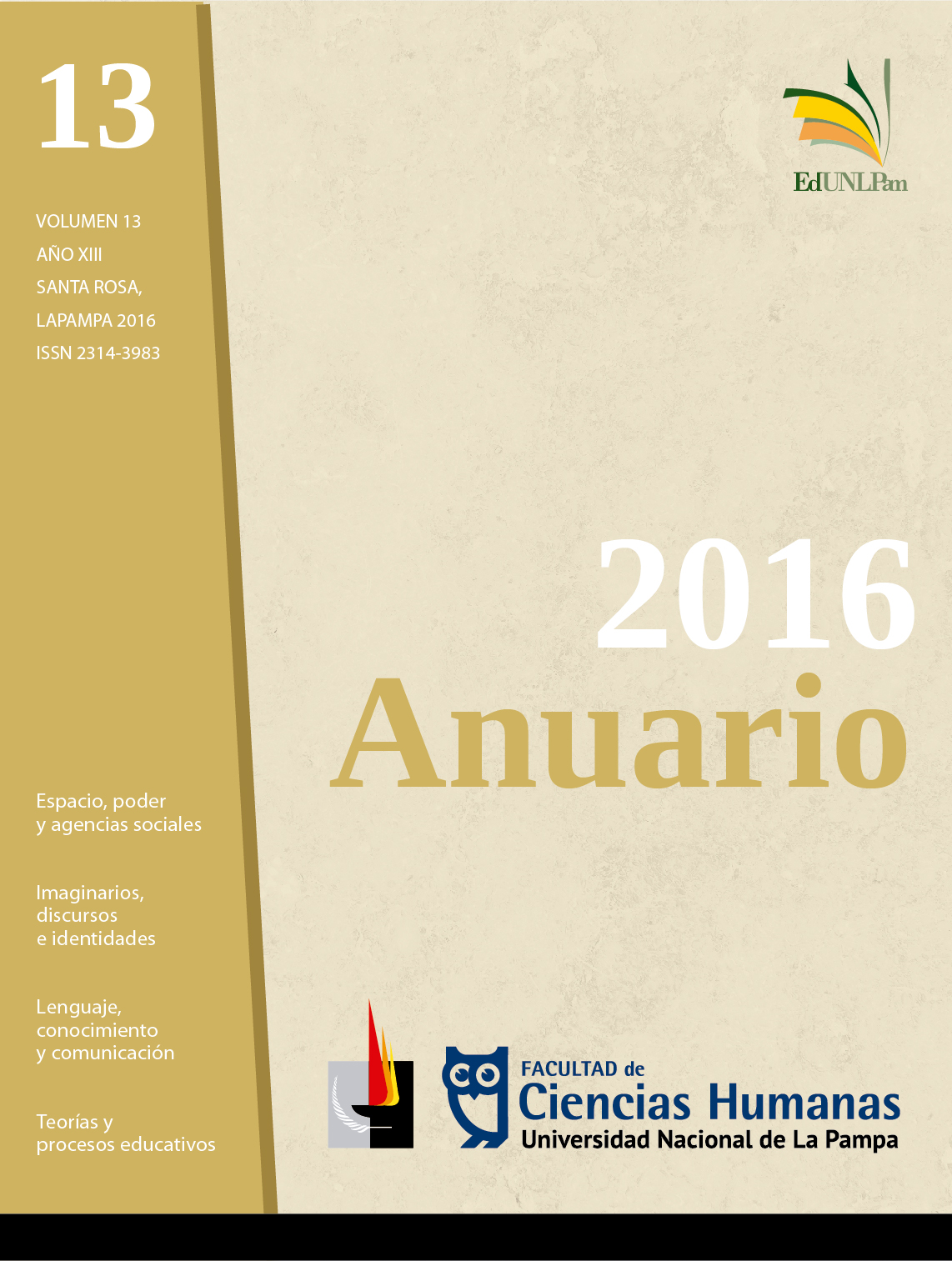Cuentos de Juan José Sena y el costumbrismo pueblerino reventado
Palavras-chave:
Juan José Sena, narrativa, costumbrismo, anti dialogismo, estereotipoResumo
Los ocho cuentos del libro La última noche del imperio de Juan J. Sena (1992) representan una etapa importante en el panorama de las letras regionales en la que se incluye la provincia de La Pampa. Sena dejó una serie de relatos que mueven el espectro del llamado realismo tradicional, y su continuidad costumbrista, hasta el punto de llevarlos a una culminación que bordea la parodia.
El objetivo de este trabajo es describir y comentar los modismos costumbristas llevados a sus límites, es decir, hasta el estereotipo, y cómo son pulverizados a través del procedimiento estilístico que consiste en exasperar tales límites dentro de la moralidad conservadora de la sociedad pueblerina.
El encuadre metodológico parte de considerar la literatura realista tradicional de principios de siglo XX en la literatura argentina y su continuidad y mezcla con el costumbrismo revisitado hacia mitad del mismo siglo. De todo ello devienen las conclusiones que permitirán señalar los rompimientos del costumbrismo que conducen los relatos de Sena hacia el naufragio trágico de sus personajes y la modulación estilística de estereotipos que significan anti dialogismo y parodia, y por eso mismo clausura de un punto de vista literario.






.png)





